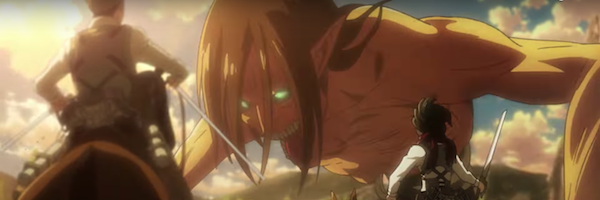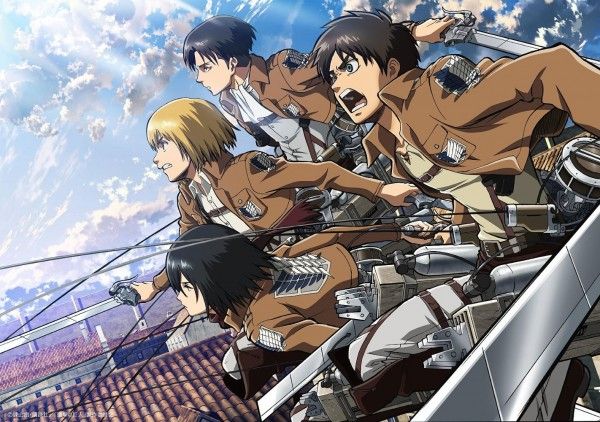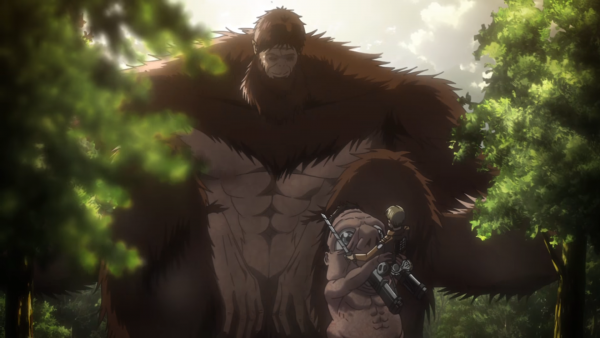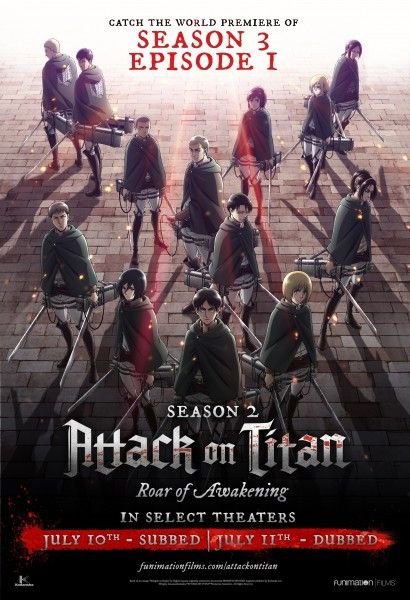It would not be controversial to say the world is far from perfect right now. We are becoming so used to hearing bad news that it’s no longer shocking when a new tragedy strikes. It is also part of the reason why so many of the recent TV shows and movies have presented us with horrible scenarios that seem far-fetched yet hit close enough to home that it provides an escape from the horrors of reality. From an “alternate” reality where Nazis won WWII in The Man in the High Castle, to a show about an authoritarian regime where women are forced to get pregnant in The Handmaid’s Tale, to one where humanity has been brought to the brink of extinction by giant humanoid beasts that devour human beings in Attack on Titan.
For those not in the know, Attack on Titan is an anime series adapted from the New York Times best-selling manga series by Hajime Isayama. We follow a group of soldiers living inside cities surrounded by three enormous walls serving as humanity’s last defence against gigantic humanoid “Titans” that devour humans for no apparent reason. When a part of the outer wall is breached by a Titan, protagonist Eren Yeager’s mother is among the casualties, so he vows to join the elite Survey Corps and kill every single Titan he can find. This is one fast-paced show; almost every episode is action scene after action scene. From the first episode you are hit with the harsh reality of the show’s world, with blood and guts flying everywhere and a sense of powerlessness that follows the entire show. The visuals of Attack on Titan are both gorgeous and appalling, juxtaposing the cruel devouring of innocent townspeople and the beautiful countryside.
There’s a reason the manga had to be printed in a then-relatively-unknown magazine, as it was considered too bleak and violent for more mainstream manga magazines, and the show follows suit. If you think The Walking Dead offers a view into a world devoid of hope, wait until you see every character you start to remotely care about get snatched by a Titan. You’ll see them completely shattered as the monsters eat them in the most gruesome way possible, leaving their compatriots (and the viewers) scarred for life.
Hajime Isayama has said in interviews that he based the basic idea of the manga on his own experiences living in a rural Japanese town surrounded by mountains. His own wish to escape his rural life is mirrored in Eren’s wishes to escape the city’s walls. The Titans themselves were influenced by Isayama’s own experiences working a night job at an Internet café. When he dealt with a drunken costumer who suddenly grabbed him and started yelling at him, the fear of not being able to communicate with the person made Isayama realize that the most familiar and scary animal in the world are humans. The Titans aren’t just dangerous monsters, their creepy expressions and exaggerated physiology are outright reflections of humans themselves, which makes them so disturbing.
Why do we enjoy watching something so horrific? The answer can be found by looking at the success of any horror movie of the last century. Writing for Psychology Today, Mark D. Griffiths Ph.D. thinks that one possible reason is catharsis. He suggests we watch violent and disturbing films/games/shows we know are fictional as a means to create a sense of control because of the distance between the viewer and the violence on the screen. We escape the horrors of real life by surviving your greatest fears in a safe environment. The negative feelings of watching something scary intensify the positive feelings once you make it to the end. While Attack on Titan is as bleak as it can get and the characters are in a constant state of fear and apprehension, it’s the fact that the characters’ situation will always be worse than the viewer’s that brings us comfort and an escape from reality.
When I say the characters have it bad, I mean they go through all Nine Circles of Hell every 20 minutes. When the Titans attack, you get the feeling that everyone – from the military to society at large – is powerless against them. History is written by the winners, and a constant theme in Attack on Titan is that we are very clearly following the losers. These are not high-born and experienced soldiers doing what they do best, instead we follow the commoners and peasants trying to survive. These people were forced to join the military branch with the highest casualty rate because they didn’t get the grades and skills to escape it or were coerced by fear or propaganda.
Like in Game of Thrones, humanity’s biggest line of defence is comprised of society’s rejects and those who simply couldn’t do any better. This makes their failures feel more urgent and humiliating. No matter how well they plan their expeditions, they always lose a big percentage of the soldiers, to the point where victory starts translating to just being able to retreat with some of your soldiers still breathing. The story does read like a more tragic and scarier version of Band of Brothers, with graphic imagery of the brutality of war and the powerlessness felt by soldiers against mighty enemies. You start feeling as desperate as the characters after each loss, yet it is precisely there where we find hope.
No matter how desperate and tragic the situation gets, the characters keep going forward. It’s all about the conflict, struggle, and rise of individuals in extreme circumstances. Before Eren’s mother is killed, starting his quest for revenge, he and his best friend Armin only dream of the world outside the walls. Eren wants to join the Survey Corps not to exterminate the Titans, but to explore what’s outside his hometown. That dream that they will someday be able to see what’s beyond drives them through the series and keeps them hopeful despite the carnage that surrounds them. Likewise, while it may seem like the army’s generals are just driven by military goals and wanting to retake the wall destroyed by the Titans, the story slowly reveals that they have more deeply personal goals that drive them. We see how the hardship of the world scars Eren and the others, but also how it builds character. When fresh recruits join the Corps, they start looking up to Eren, Armin, and the rest for inspiration and hope.
As Attack on Titan approaches its brutal season 3 premiere and more and more characters get torn to pieces, we can find solace in the hope that the Survey Corps may finally get closer to the infamous basement, and that they will press on no matter what. (But seriously though, it’s taking them so long!) Look for Attack on Titan’s Season 3 premiere on July 23rd.




